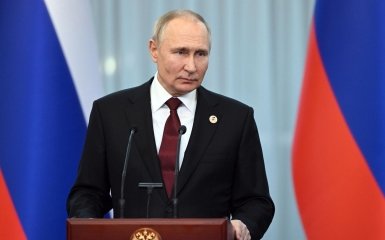According to the US Institute for the Study of War (ISW), official Moscow has once again launched a campaign of reflexive control aimed at influencing decision-making in the West using nuclear threats and diplomatic manipulation.
What is reflective management? This is the mechanism of transferring the reasons for making a decision to the opponent by means of provocations, intrigues, disguises, creation of false objects and lies of any type.
Putin is trying to intimidate the West with nuclear war
Foreign experts point out that reflexive control can be considered the main element of Russia's hybrid warfare toolkit.
The Kremlin always does its best to make its opponents voluntarily take actions that are beneficial to Russia.
Putin's team always announces nuclear preparedness exercises and voices threats on the eve of important political decisions in the West regarding the war in Ukraine.
The current apparent resurgence of nuclear rhetoric, this time in the form of planned tactical exercises involving nuclear weapons, coincides with the imminent arrival of Western weapons in Ukraine.
Moscow fears increased support for Ukraine
In all likelihood, the Kremlin launched a new information operation about nuclear weapons to dissuade Kyiv's allies from providing additional military support and scare Western politicians into allowing Ukrainian forces to use Western-provided systems to attack legitimate military targets in Russia.
Russian forces conduct routine nuclear exercises as part of this broader nuclear rhetoric information operation, but ISW continues to assess that Russia is highly unlikely to use tactical nuclear weapons on the battlefield in Ukraine or elsewhere.
According to American analysts, the aggressor country of the Russian Federation often used nuclear weapons during the full-scale invasion of Ukraine in order to force the West to stop providing military support to Ukraine.



